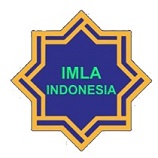KEBIJAKAN REZIM OTORITER TERHADAP ISLAM POLITIK (STUDI KASUS REZIM SOEHARTO DAN ANWAR SADAT)
Abstract
This dissertation titled "The Policies of Authoritarian Regimes towards Political
Islam: A Case Study on Soeharto’s and Anwar Sadat’s Regimes" attempts to answer this
question: what policies towards Political Islam were adopted by Soeharto’s and Sadat’s
regimes and what are the similarities and differences between both of them as well as
their underlying factors? This dissertation is a library research with qualitative data
using descriptive, interpretative, and analytical approaches based on the theory of policy.
The policies of both regimes are classified into two broad strategies, namely: first,
the subjugation of Political Islam’s power (through two modes: a. violence and
marginalization; and b. propaganda and image politics); second, the accommodation of
Political Islam (through two modes: social and religious appeasement; and legislative
policy appeasement). Those policies are significantly of similar style and aim but
different in terms of order and tactic of implementation. In general, those policies are
equally pragmatic and realistic for maximizing the regime’s strength and gains and
outrivaling all powers of Political Islam with view of achieving the state’s political
stability and avoiding the emergence of legitimacy crisis owing to domestic situations.
Therefore, the researcher refers to such policies as hegemonic regime’s domestic
political stability strategy.
Islam: A Case Study on Soeharto’s and Anwar Sadat’s Regimes" attempts to answer this
question: what policies towards Political Islam were adopted by Soeharto’s and Sadat’s
regimes and what are the similarities and differences between both of them as well as
their underlying factors? This dissertation is a library research with qualitative data
using descriptive, interpretative, and analytical approaches based on the theory of policy.
The policies of both regimes are classified into two broad strategies, namely: first,
the subjugation of Political Islam’s power (through two modes: a. violence and
marginalization; and b. propaganda and image politics); second, the accommodation of
Political Islam (through two modes: social and religious appeasement; and legislative
policy appeasement). Those policies are significantly of similar style and aim but
different in terms of order and tactic of implementation. In general, those policies are
equally pragmatic and realistic for maximizing the regime’s strength and gains and
outrivaling all powers of Political Islam with view of achieving the state’s political
stability and avoiding the emergence of legitimacy crisis owing to domestic situations.
Therefore, the researcher refers to such policies as hegemonic regime’s domestic
political stability strategy.
Keywords
Policies, Regime, Political Islam.
Full Text:
PDFDOI: https://doi.org/10.20961/cmes.6.1.11684
Refbacks
- There are currently no refbacks.
Copyright (c) 2017 Jurnal CMES
| Copyright of CMES ISSN 2085-563X (print) and ISSN 2502-1044 (online) CMES Journal is licensed under a Creative Commons Attribution-ShareAlike 4.0 International License. | CMES (Center of Middle Eastern Studies) Print ISSN: 2085-563X Online ISSN: 2502-1044 Website: https://jurnal.uns.ac.id/cmes/index Email: cmes@mail.uns.ac.id Published by: Arabic Literature Department, Faculty of Cultural Science, Universitas Sebelas Maret Ir. Sutami Street, No. 36A, Surakarta, Jawa Tengah 57126 Phone: +62 822-4000-2313 |















